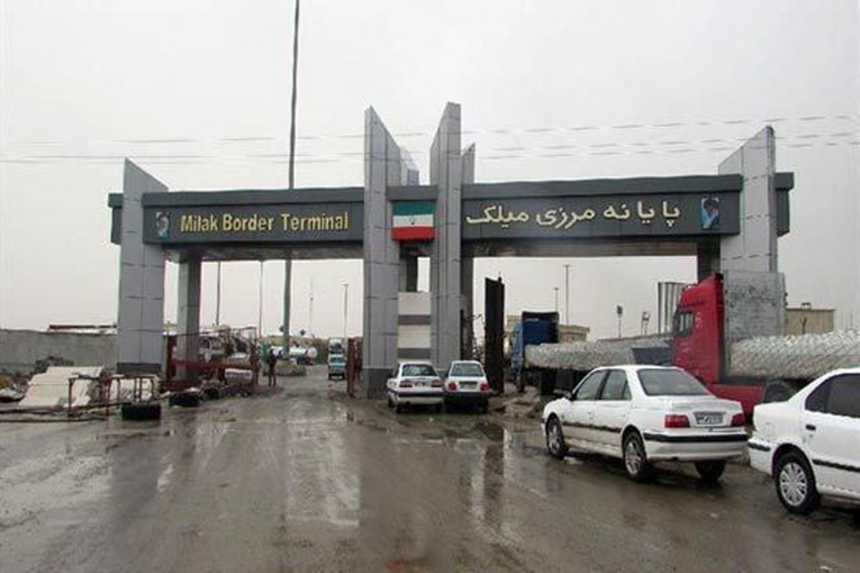RASC News Agency: After months of paralysis caused by Taliban-imposed restrictions, the Milak border crossing, one of the most vital trade arteries between Iran and Afghanistan, has finally reopened, reviving commercial activity that had been suffocated by the group’s arbitrary economic decisions and lack of administrative coherence.
Alireza Shahraki, the governor of Hirmand County in Iran’s Sistan and Baluchestan province, confirmed on Sunday that cross-border trade has officially resumed through Milak, a key route that connects Iran’s southeastern frontier to Afghanistan’s Nimroz province. The crossing serves as a major conduit for the export of Iranian fuel, cement, food products, industrial goods, and agricultural commodities—lifelines for Afghanistan’s struggling economy.
According to Shahraki, the border had been closed for several months following disputes with the Taliban authorities over what he described as “unilateral changes in the import fuel regulations” imposed by the de facto rulers in Kabul. The move left dozens of Iranian fuel tankers stranded inside Afghan territory, disrupting trade and straining relations between Tehran and the Taliban.
“After several rounds of intensive negotiations between Iranian officials and Taliban representatives, the issue has been resolved,” Shahraki said, adding that the unloading of Iranian fuel has resumed and truck drivers are now gradually returning home.
However, regional observers note that the root of the problem lies far deeper than a mere trade misunderstanding. The closure of Milak is the latest in a series of border and trade disruptions under the Taliban, reflecting the group’s inability to manage international commerce or maintain predictable economic relations. Over the past year, the Taliban’s inconsistent trade policies—ranging from arbitrary customs decisions to spontaneous border shutdowns—have undermined Afghanistan’s credibility as a trading partner and intensified regional distrust.
For traders and local communities dependent on the Milak crossing, the economic consequences have been severe. According to sources in Sistan and Baluchestan, the months-long shutdown caused millions of dollars in losses, with Afghan and Iranian merchants alike bearing the brunt of Taliban mismanagement. “Trade cannot thrive under uncertainty,” said a business representative in Zaranj, the provincial capital of Nimroz. “When every decision depends on the mood of a local Taliban commander, commerce becomes impossible.”
Despite the reopening, analysts warn that the reliability of the border remains fragile. The Taliban’s lack of technical expertise, coupled with their fragmented internal command structure, continues to impede effective coordination with neighboring states. Several Taliban-controlled border points—including Islam Qala and Spin Boldak—have seen similar disruptions in recent months, triggered by disputes over tariffs, fuel pricing, and border inspections.
Afghanistan’s dependence on Iranian fuel imports adds another layer of vulnerability. The country imports a significant portion of its gasoline and diesel through the Sistan and Baluchestan crossings. Yet, Taliban authorities have repeatedly rejected Iranian fuel consignments, citing “low quality”—a claim many experts dismiss as an excuse to extort traders through informal levies and bribes. Such actions, according to economists, highlight the Taliban’s increasingly predatory approach to economic governance.
“The Taliban’s behavior at border crossings demonstrates not only a lack of administrative competence but also a deep-seated culture of exploitation,” said a Kabul-based economist who spoke to RASC on condition of anonymity. “Their local commanders treat trade routes as personal fiefdoms, imposing taxes and restrictions that serve no public purpose.”
While the reopening of Milak brings temporary relief to both countries, many experts caution that it represents a fragile and reversible normalization. Iran, driven by economic necessity, has chosen engagement over confrontation, yet Tehran remains wary of the Taliban’s erratic governance and their failure to guarantee border security. For Iran’s energy exporters, Afghanistan remains a lucrative but unpredictable market—a nation ruled by a movement that struggles to reconcile its militant identity with the responsibilities of statehood.
Meanwhile, the ordinary citizens of Afghanistan—already battered by economic collapse, unemployment, and drought—continue to suffer the consequences of Taliban misrule. With governance defined by isolation, corruption, and coercion, even basic trade lifelines such as the Milak crossing become political bargaining chips in a game that benefits only the regime’s inner circle.
In the words of one Nimroz-based merchant interviewed by RASC:
“For the Taliban, trade is not about economic stability; it’s about control. Every reopening is temporary, every deal uncertain. The people are left to pay the price.”
As the region braces for another harsh winter and energy shortages intensify, the reopening of the Milak crossing stands as a reminder of Afghanistan’s economic fragility—and of how a regime defined by ideology, not governance, continues to push the country deeper into dependence and despair.






